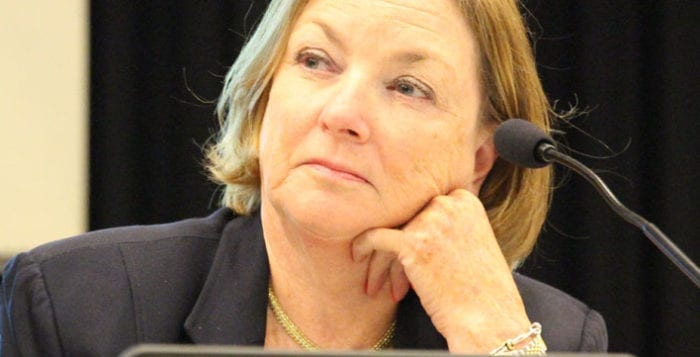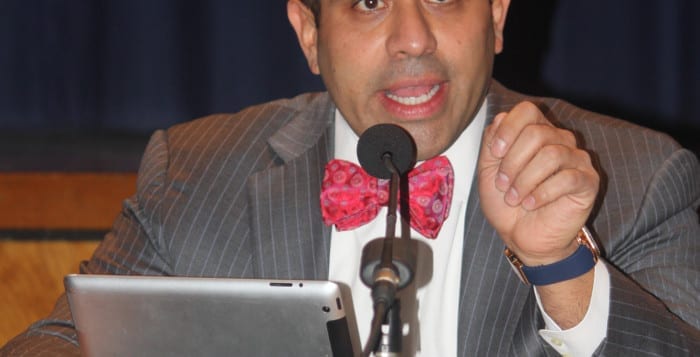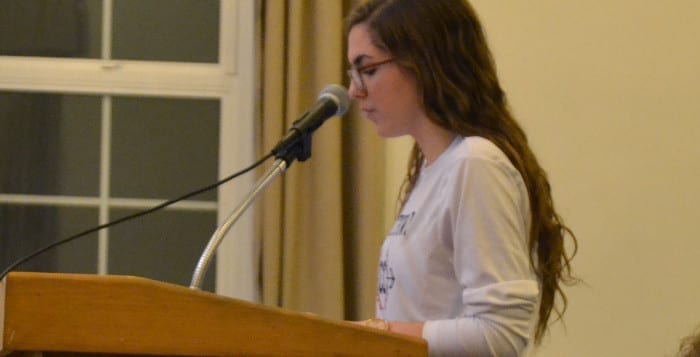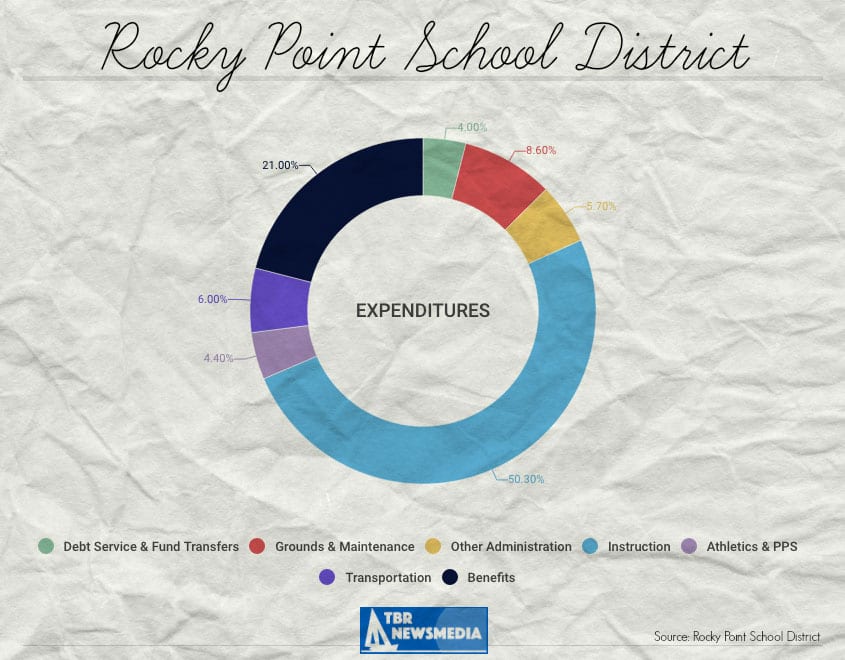Smithtown students have been told for a long time their personal phones, tablets and other electronic devices are not allowed in school. In April, that is going to change.
Assistant superintendent for instruction for the district, Jennifer Bradshaw, announced at a board of education meeting on March 22 Smithtown will be opening free internal Wi-Fi for students and allow access via personal electronic devices beginning next month. In addition, every student will be assigned an internal email address that will allow messages to be sent from student to student, or student to teacher. The new initiative is for students in grades six through 12.
“This is going to increase their ability to work collaboratively and communicate with teachers and other students about the work that they’re doing in school,” Bradshaw said on March 22. “Again, it’s entirely internal. There’s not going to be any access to outside email accounts. I’m pretty excited about this expansion … it’s a very logical next step.”
Bradshaw said a Google for Education application would host the email addresses. Google for Education was designed to “provide easy tools to engage students anytime, anywhere, on any device,” according to its website. Bradshaw also said the district already uses Google Classroom, which provides applications to allow teachers to assign work and for students to submit assignments as a collaborative tool.
The Wi-Fi access will be filtered, as is Internet access on existing school computers and devices. Social media sites and applications Facebook and Snapchat will be blocked, though Twitter, Instagram and YouTube will be allowed for educational use.
Bradshaw said use of this technology for educational purposes is a valuable tool for students to learn.
“It’s used in at least three-fourths of the top 20 schools that we send our students off to,” Bradshaw said about applications through Google for Education. “It’s really great preparation for them, but beyond that it’s really great for collaboration now.”
School board President Christopher Alcure expressed excitement about the possibilities technology present as a resource for education.
“It’s fantastic that we’re getting them started young,” Alcure said, and added his sixth-grader frequently has to submit assignments through Google Classroom. “I’m all for it.”
In October, about 20 students from Smithtown and Kings Park schools were suspended when explicit content involving three underage students from unspecified districts was spread electronically across the two districts. The incident, referred to as a sexting scandal, occurred off of school grounds. Two 14-year-old Smithtown High School boys were arrested and charged with disseminating indecent material to minors and promoting a sexual performance by a child as a result of the incident.
“Part of our responsibility as a school district is to teach digital citizenship — how to use electronic tools responsibly as well as productively,” Bradshaw said in an email Monday. “It is part of our greater mission to create responsible citizens. We will, of course, support this expansion with continued education about how to use the tools effectively and responsibly.”
The district already has a section in its code of conduct about the acceptable use of technology, which Bradshaw said students would be required to agree to each time they attempt to gain access to the school’s network.

















